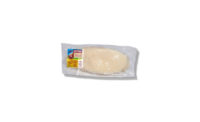Unilever evolves structure into 3 divisions to become more agile, focused
The changes also further strengthen Unilever’s corporate governance, creating a “one share, one vote” principle for all shareholders.
Unilever, London, announced the next steps in the transformation into a simpler, more agile and more focused business.
Firstly, Unilever is evolving its structure to be based on three divisions—beauty and personal care, home care and foods and refreshment. The three divisions will be more empowered with greater responsibility for making long-term strategic choices and managing financial performance. All three divisions will continue to benefit from Unilever’s global scale and route to market. The headquarters of the foods and refreshment division will continue to be based in Rotterdam.
Second, Unilever intends to simplify from two legal entities, N.V. and PLC, into a single legal entity incorporated in the Netherlands. The proposed simplification will provide greater flexibility for strategic portfolio change and help drive long-term performance.
The changes also further strengthen Unilever’s corporate governance, creating a “one share, one vote” principle for all shareholders.
“Unilever’s board is fully committed to delivering long-term performance and sustainable value for shareholders,” says Marijn Dekkers, chairman. “The board believes the move to three divisions and the simplification of our corporate structure will create a simpler, more agile and more focused company with increased strategic flexibility for value-creating portfolio change. Our decision to headquarter the divisions in the UK and the Netherlands underscores our long-term commitment to both countries. The changes announced today also further strengthen Unilever’s corporate governance, creating for the first time in our history a ‘one share, one vote’ principle for all our shareholders.”
The move to three divisions and the simplification of the corporate structure will deliver the following:
Drive stronger performance
With the Connected 4 Growth program and the setup of Country Category Business Teams, Unilever implemented a more consumer-facing organization that can roll out global innovations faster and be more agile in responding to local trends.
The divisions will develop innovation, including strategy, research, product development and advertising, and will be better equipped to make in-year trade-offs and allocate resources more dynamically between geographies. Each division will make its own investment decisions based on strategic objectives, and will make recommendations for capital allocation, both in the supply chain and in developing the portfolio through M&A.
The divisions will continue to benefit from Unilever’s global scale, including access to capital, procurement across the value chain, shared services and information capabilities. The divisions will also leverage the strengths of local management teams and a combined distribution scale, particularly in emerging markets.
From dual-headed structure to single holding company
Unilever has been owned through two separately listed companies, a Dutch N.V. and a UK PLC, since its formation in 1930. These companies have been governed by complex agreements to maintain parity between economic rights of the respective shareholders. The shares in N.V. represent the larger portion of Unilever (55% of the group’s combined ordinary share capital), and trade with greater liquidity than PLC shares.
The strategic review concluded that a single holding company brings greater simplicity and more flexibility to make strategic changes in the portfolio in the future, including through equity-settled acquisitions or de-mergers.
Following simplification, shareholders of PLC and N.V. will share the same dividend and capital distribution interests in the new holding company and in the same relative proportions in the combined group as before.
Governance
In the last 15 years, Unilever has taken major steps to be at the forefront of good corporate governance. This included the acquisition of N.V. preference shares in 2017, which held disproportionate voting rights. Upon completion of the new corporate structure, the preference shares will be terminated, and it is intended to close the N.V. Trust Office and terminate the related depositary receipt structure. Unilever will continue to apply both UK and Dutch corporate governance codes. The board of Unilever will become the board of the new single holding company.
Establishing the new company
The simplification of the current N.V. and PLC holding companies under New N.V. will be achieved through a combined process involving, for PLC, a UK scheme of arrangement, and for N.V., a Dutch statutory merger.
The following will not change as a result of the transformation:
- Unilever’s spend in the UK and the Netherlands.
- Unilever’s employment of 7,300 people in the UK and 3,100 in the Netherlands.
- Unilever shares being listed and traded in London, Amsterdam and New York.
- The manufacture of Unilever products in the UK and the Netherlands.
- A single Unilever board, elected annually.
- Unilever applying both the UK and Dutch corporate governance codes.
- Parity in the dividend and capital return interests of shareholders.
Looking for a reprint of this article?
From high-res PDFs to custom plaques, order your copy today!






